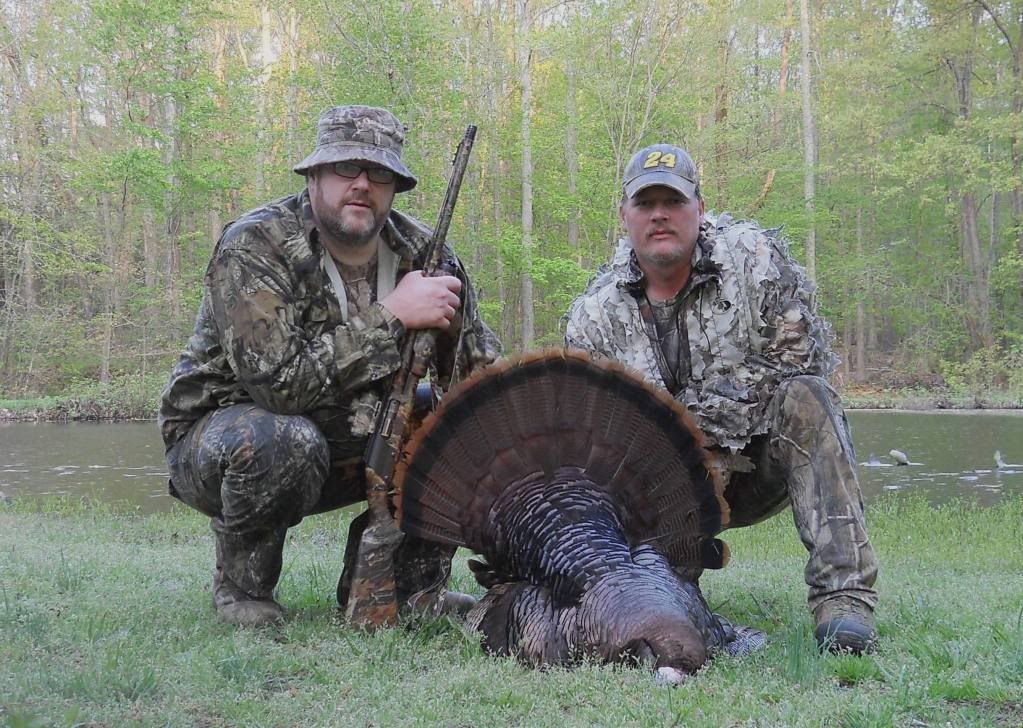How come the Tom's are so quite?
#1
Hey All
It has been a wet first week here in Ontario so maybe that is why but I have not heard a gobble all week.
I have had two Tom's come in but so silent what do ya think gives?
Treebeard
It has been a wet first week here in Ontario so maybe that is why but I have not heard a gobble all week.
I have had two Tom's come in but so silent what do ya think gives?
Treebeard
#3
Typically they are quiet because they have hens with them,but the same has been the norm here for the last two seasons ever since we had a realy hard winter for this area. The last two seasons they gobble frequently on the roost but once down you never hear em again. I just have you have had toms come in completely silently only to get busted by them. I cant really explain it other than in our area the coyotes have been breeding like rabbits and I think the birds are onto that and call less for fear of becoming prey. Just a theory.
#4
I have had some birds gobbling in my areas but not like last year. We have been pounded with bad weather for 3 weeks now and the birds have been soaking wet so much I think they are wore out from just dealing with the elements. They are still strutting around here but it seems to be tapering off already only 6 days into our season.
#5
Typically they are quiet because they have hens with them,but the same has been the norm here for the last two seasons ever since we had a realy hard winter for this area. The last two seasons they gobble frequently on the roost but once down you never hear em again. I just have you have had toms come in completely silently only to get busted by them. I cant really explain it other than in our area the coyotes have been breeding like rabbits and I think the birds are onto that and call less for fear of becoming prey. Just a theory.
I roosted him the night before and got him real excited by letting him know he wasnt far from getting some morning "hen". Against most veteran hunters beliefs, I called at him on the roost to get him gobbling for several minutes before I left for the night.
I had my buddy set up in the blind with B-Mobile, 2 hens and 2 jake decoys we had on the ground at 5 am. I went ahead about 100 yrds and got him to fly down. As soon as I knew he was on the ground, I backed up 50 yrds and let a few more yelps, cut and some purring. Before I knew it he was coming in fast, I ran and got behind the blind, let out one more yelp and as soon as he saw the decoys he went into full strut before I heard the shot and "bird down". The sun hadnt even risen and we were done by 6:45. Turkey hunting is much more exciting when you have a "wing man" (no pun intended) to lead him in the direction of the decoys and your set up before he gets henned up; which usualy happens when you set up more than a few hundred yards from a roosted Tom.
I have trailcams of at least 4 different foxes, a bobcat, skunks, etc that I thought would impact the poults this season, but I have had more success this year than the past 5. Im 2 birds down, called another in for the kill, and am still finding roosted birds in the same general 100 acre parcel. You just have to put some leg work in finding where they are, hence the importance of preseason scouting. If you deer hunt the same area, you can get a few ideas of the preferred turkey environment by knowing the food sources, water location, and the cover that protects them from predators.
Point is, if the place has ever held birds in the past seasons, there may be a lull of a seson or two before the population revives. It also helps to do some trapping of skunks, foxes, and any other predator that may affect the poult survival. I dont think the harsh winter has anything to do with it except push them into earlier mating as the weather returns to "springlike".




